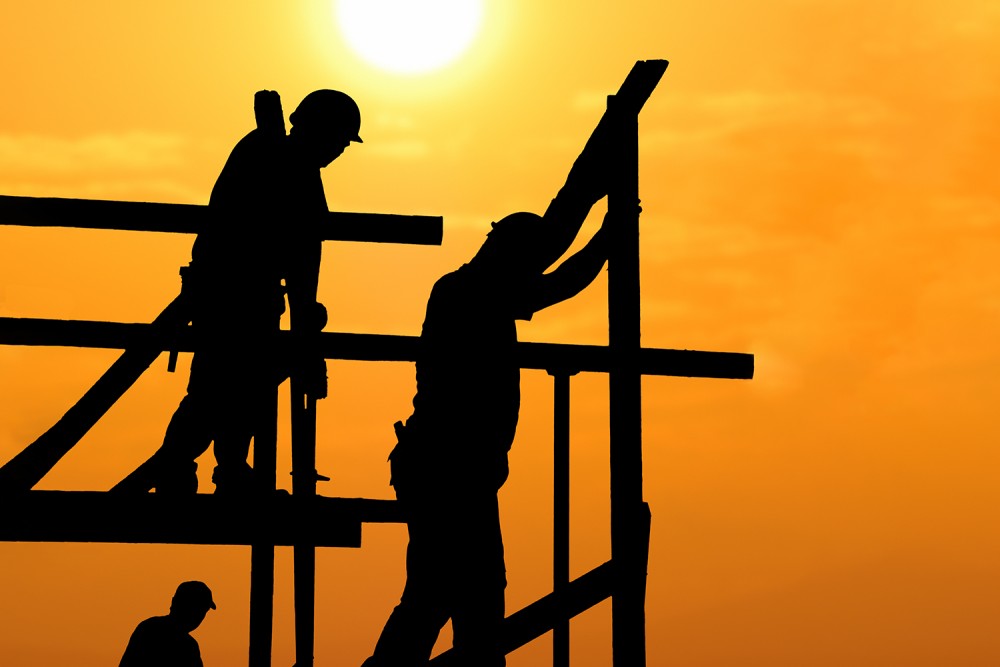A failure of compassion
Outdoor workers need a little water and shade every four hours. Is that too much to ask?

(Source photo by akarelias / iStock / Getty)
One way to deepen your empathy for other people who live in difficult circumstances is to imagine walking in their shoes. I often do this when I encounter people in daily life who perform jobs that I’m not sure I could manage or tolerate for even a day. Whether it’s an individual enduring dangerous work conditions, tedious assignments, a hostile environment, or depressingly low wages, I try to picture trading my life for theirs. It’s a sobering mental experiment that quickly alters perspective and shifts one’s assumptions about how easy or hard life can be. If it doesn’t alter such a basic outlook within us, I think we ought to require ourselves to undertake the hazardous or dispiriting work for which we’re displaying such grand indifference.
I thought about this empathy-deepening exercise recently when I learned of Florida’s governor signing new legislation prohibiting cities, counties, and municipalities from requiring employers to provide outdoor workers with access to water, rest, and shade. Florida’s bill matches similar legislation approved in Texas last year. The Texas law nullified existing ordinances in cities like Austin and Dallas that guaranteed construction workers a ten-minute break every four hours. Elements of the business and agricultural communities fought for the newly restrictive legislation, fearing they’d shoulder onerous economic burdens if the bill didn’t pass. Apparently they lack the imagination to calculate how a periodic break might actually increase worker productivity and morale.
Read our latest issue or browse back issues.
We should be clear that these heat protection ordinances do not tank companies. They give some water and a few minutes of shade every four hours to workers wilting in the heat. They don’t hand over year-end bonuses, offer profit-sharing plans, or create stock options for workers. They involve a cup of cold water, about which Jesus himself has something to say (Matt. 10:42). Is requiring a little water and shade every four hours too much to ask? “Insane and inhumane,” writes Jeff Goodell, author of The Heat Will Kill You First. “This is 19th-century stuff, as barbaric as kids working in coal mines.” Heat is the number one weather-related killer in the US.
I’m trying to guess at what might create the hardness of heart in legislators who make such moves. I wonder if a certain degree of emotional illiteracy is at play, a cold indifference fostering this calculated neglect of vulnerable people. Must compassion really be considered a chore? Can’t it be a choice we make, one that’s even informed by faith? “When someone suffers, and it is not you,” writes Elie Wiesel, “that person comes first. His very suffering gives him priority.” That’s what I understand the guts of compassion to be. You make choices that privilege the person in front of you instead of merely attending first to your own interests and predilections.
Ninety percent of Florida legislators profess to be Christian; 100 percent of Texas legislators do. These lawmakers must have some basic familiarity with the parable of the Good Samaritan. What they may not have ever heard, however, is Martin Luther King Jr.’s suggestion that this parable should encourage a “dangerous unselfishness.” The priest and Levite asked themselves, says King, “If I stop to help this man, what will happen to me?” But it’s the Samaritan who asks himself, “If I do not stop to help this man, what will happen to him?”
It doesn’t take rocket science to protect workers from heat. All that’s needed is a little drinking water, some periodic shade, and a bit of dangerous unselfishness. Or, as Emily Dickinson put it: “If I can ease one Life the Aching, Or cool one Pain . . . I shall not live in vain.”







